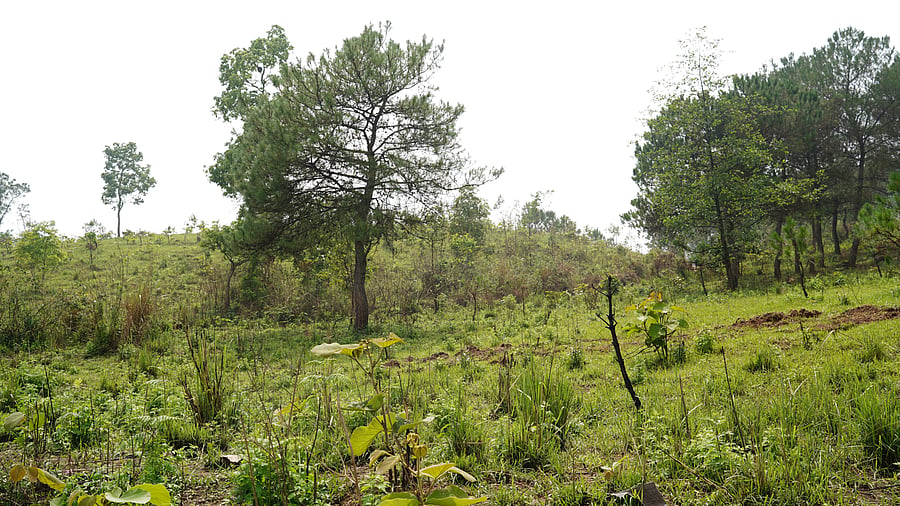
Miwawaki forest in Meghalaya
Meghalaya government
Guwahati: Meghalaya has taken to Miyawaki, a Japanese method of plantation, to grow dense forests fast in order to restore its forest and thereby reduce carbon footprints.
The method was introduced by Japanese botanist Akira Miyawaki that involves planting native trees close together in layers. This leads to rapid growth of dense and self-sustaining forests. These forests grow faster than traditional plantations and require less maintenance over time.
The state had started using this method as a pilot project in Garo Hills about three years ago and similar plantations are being implemented on a total of 25,000 hectares throughout Meghalaya.
"We are planting the local species of trees in our forests by adopting the Miyawaki method, in which density of the trees is more than the normal plantations. It enables more bodiversity to take place and is healthier for the soil. The layering created on the hills for the plantations also helps the soil to be stable. The carbon sequestration is also much higher," Meghalaya CM Conrad Sangma said after visiting Mawsharoh and Ummir in East Khasi Hills district, where the method is being used to grow a forest on a 1.5-hectare area. "We hope to cover another 1,000 hectares in the coming days," he said.
Deforestation:
The rampant hill cutting and coal mining over the years resulted in deforestation and reduction in forest cover in Meghalaya. With concerns being raised over deterioration of the ecology in the hilly state, the state goverment had taken up Green Meghalaya project to restore the forests and check carbon emissions. The state government has also started providing financial incentives through a scheme called Payment for Ecosystem Services for conservation of forests.
"The Miyawaki method not only helps restore greenery but also brings many other benefits. These mini-forests help absorb carbon dioxide, fight climate change, improve air quality, reduce noise pollution, and provide shelter for wildlife. Meghalaya’s rich soil and unique climate make it ideal for growing these forests," Sangma said.
The project is being implemented by the state soil and water conservation department with the support from local communities, who are actively involved in the planting and care of these forests.